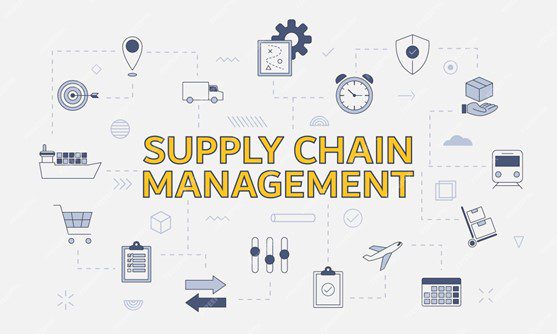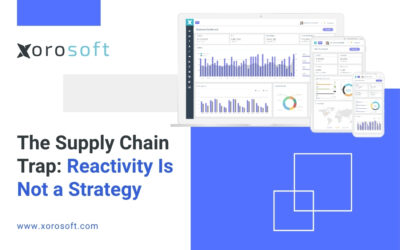
Introduction to ERP systems
In today’s fast-paced business environment, organizations need to optimize their operations to stay competitive. One area that often requires attention is sales and order management. Inefficient processes can lead to delays, errors, and dissatisfied customers. This is where an Enterprise Resource Planning (ERP) system comes into play.
An ERP system is a powerful software solution that integrates various business functions into a single unified system. It allows companies to streamline their processes, improve efficiency, and enhance customer satisfaction. By centralizing data and automating key tasks, an ERP system provides real-time insights, reduces manual errors, and enables better decision-making.
Benefits of implementing an ERP system for sales and order management
Implementing an ERP system for sales and order management offers numerous benefits for businesses. Firstly, it provides a holistic view of the entire sales process, from lead generation to order fulfillment. This visibility allows sales teams to track customer interactions, monitor sales pipelines, and identify bottlenecks. By having access to accurate and up-to-date information, sales representatives can provide better customer service and make informed decisions.
Secondly, an ERP system improves efficiency by automating repetitive tasks. For example, generating quotes, processing orders, and issuing invoices can be automated, reducing manual errors and saving time. This automation also improves order accuracy and speeds up order fulfillment, leading to faster delivery times and increased customer satisfaction.
Furthermore, an ERP system enables better inventory management. With real-time visibility into inventory levels, businesses can optimize stock levels, reduce carrying costs, and avoid stockouts or overstock situations. This ensures that the right products are available when customers place orders, improving order fulfillment rates and reducing backorders.
Key features of an ERP system for streamlining sales and order management
An effective ERP system for sales and order management should have several key features to streamline operations. Firstly, it should offer a comprehensive customer relationship management (CRM) module. This module allows businesses to manage customer interactions, track leads, and analyze sales data. It enables sales teams to effectively manage customer relationships, identify cross-selling and upselling opportunities, and improve sales forecasting.
Secondly, an ERP system should have robust order management capabilities. This includes features such as quote generation, order processing, order tracking, and invoicing. These functionalities streamline the entire order management process, from initial inquiry to final payment. Through automation and integration with other modules, businesses can reduce manual errors, eliminate duplicate data entry, and improve order accuracy.
Additionally, an ERP system should have advanced reporting and analytics capabilities. This allows businesses to gain insights into sales performance, customer behavior, and market trends. With customizable dashboards and reports, sales managers can track key performance indicators, identify areas for improvement, and make data-driven decisions.
How Xorosoft ERP can enhance efficiency and customer satisfaction
Xorosoft ERP is a leading ERP solution that can significantly enhance efficiency and customer satisfaction in sales and order management. With its robust CRM module, businesses can effectively manage customer relationships, track sales opportunities, and improve sales forecasting. The integration of customer data with sales processes enables personalized customer interactions and targeted marketing campaigns, leading to increased customer satisfaction and loyalty.
Xorosoft ERP’s order management capabilities streamline the entire order processing cycle. From quote generation to order fulfillment, businesses can automate tasks, eliminate manual errors, and improve order accuracy. Real-time inventory visibility ensures that products are available when customers place orders, reducing backorders and improving delivery times. This improves customer satisfaction and helps businesses maintain a competitive edge.
Furthermore, Xorosoft ERP provides advanced reporting and analytics features. Sales managers can access real-time sales data, analyze performance metrics, and identify trends and patterns. This empowers them to make informed decisions, optimize sales strategies, and drive revenue growth. With Xorosoft ERP, businesses can achieve higher operational efficiency, improved customer satisfaction, and increased profitability.
Streamlining inventory management with an ERP system
Effective inventory management is crucial for businesses to meet customer demand while minimizing carrying costs. An ERP system plays a vital role in streamlining inventory management processes. It provides real-time visibility into inventory levels, allowing businesses to monitor stock levels, track product movements, and optimize inventory planning.
With an ERP system, businesses can automate key inventory management tasks, such as stock counting, replenishment, and cycle counting. This automation reduces manual errors, improves data accuracy, and saves time. By setting up alerts and notifications, businesses can also proactively manage stock levels, ensuring that popular items are always available and minimizing the risk of stockouts.
Furthermore, an ERP system enables businesses to implement efficient inventory control mechanisms. They can set up reorder points, safety stock levels, and economic order quantities based on historical data and demand forecasts. This ensures that inventory is replenished in a timely manner, reducing stockouts and overstock situations.
The role of accounting in an ERP system
Accounting is a critical component of an ERP system, especially in sales and order management. An ERP system integrates accounting functions with other business processes, providing a centralized and accurate financial view of the organization.
With an ERP system, businesses can automate accounting processes, such as invoice generation, payment processing, and financial reporting. This automation improves efficiency, reduces manual errors, and saves time. Businesses can also ensure compliance with accounting standards and regulations, as the ERP system enforces financial controls and provides audit trails.
Furthermore, an ERP system enables businesses to gain insights into financial performance. By integrating sales data with accounting data, businesses can analyze profitability, track revenue, and identify cost drivers. This helps in making informed financial decisions, improving cash flow management, and maximizing profitability.
Implementing an ERP system: Best practices and considerations
Implementing an ERP system for sales and order management requires careful planning and execution. Here are some best practices and considerations to ensure a successful implementation:
-
Define clear objectives: Clearly define your business objectives and goals for implementing an ERP system. This will guide the implementation process and help measure success.
-
Involve key stakeholders: Involve key stakeholders from different departments in the implementation process. This ensures that all functional requirements are considered and enables smoother adoption across the organization.
-
Data migration and cleansing: Plan and execute a data migration strategy to ensure a smooth transition from existing systems to the new ERP system. Cleanse and validate data to ensure accuracy and integrity.
-
Training and change management: Provide comprehensive training to end-users to ensure they are proficient in using the new ERP system. Implement change management strategies to address resistance and drive user adoption.
-
Continuous improvement: Implement a process of continuous improvement, regularly reviewing and optimizing sales and order management processes. Leverage data and analytics to identify areas for improvement and make necessary adjustments.
Conclusion: The future of sales and order management with ERP systems
In conclusion, implementing an ERP system for sales and order management is a game-changer for businesses looking to boost efficiency and customer satisfaction. From streamlining processes and improving inventory management to enabling better financial visibility, an ERP system provides the necessary tools to succeed in today’s competitive marketplace.
Xorosoft ERP is an excellent choice for businesses seeking a comprehensive ERP solution. With its robust CRM module, advanced order management capabilities, and integrated accounting features, Xorosoft ERP empowers businesses to achieve higher operational efficiency and enhance customer satisfaction. To experience the benefits firsthand, book a demo with Xorosoft today and take your sales and order management to the next level.









